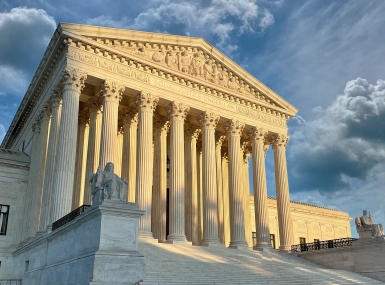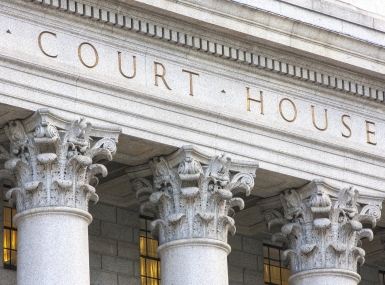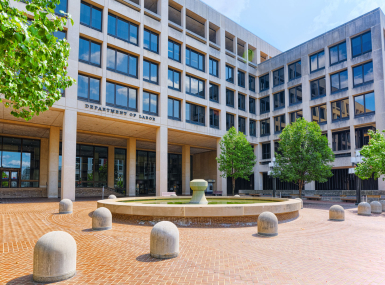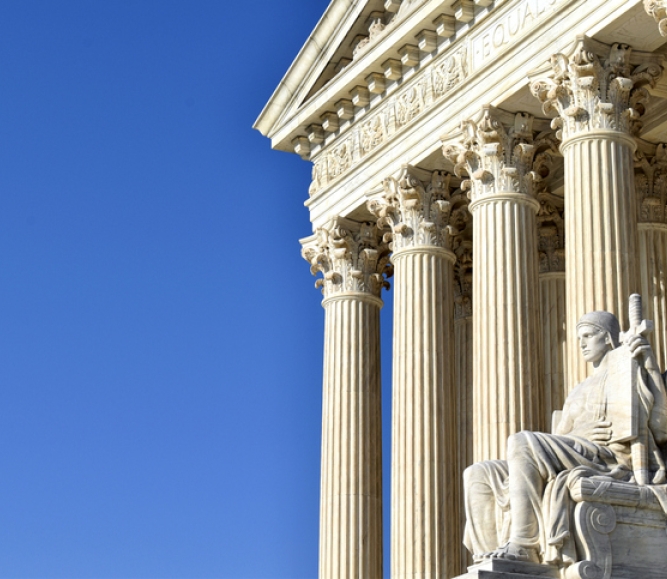NACo Legal Advocacy: McLaughlin Chiropractic Associates, Inc. V. McKesson Corporation
Author

Paige Mellerio

Joe Jackson
Upcoming Events
Related News

County Nexus
McLaughlin Chiropractic Associates, Inc. V. McKesson Corporation could make it more difficult for counties to challenge Federal Communications Commission (FCC) orders, many of which have taken steps to preempt and curtail local authority by limiting counties’ abilities to manage their own right of way and assess fair market value permitting and impact fees on providers seeking to construct, modify or extend telecommunications infrastructure in their communities.
Background
The central question in McLaughlin v. McKesson is does the Hobbs Act require the district court in this case to accept the Federal Communications Commission’s (FCC) legal interpretation of the Telephone Consumer Protection Act (TCPA). Under the TCPA, Congress made it illegal to use a fax machine, computer or other device to send an unsolicited advertisement to a fax machine. The respondent in this case, McKesson, sent a promotional online fax campaign to small medical practices, including the petition, McLaughlin, who then sued McKesson under the TCPA.
Years into proceedings, the FCC issued an order interpreting the TCPA to exclude “online fax services” from the definition of “telephone facsimile machine.” The district court ultimately held that it was bound by a Ninth Circuit precedent to treat the FCC order as authoritative and binding according to the Hobbs Act. The Hobbs Act provides circuit courts “exclusive jurisdiction” to “enjoin, set aside, suspend (in whole or in part), or to determine the validity of” certain agency orders (28 U.S.C. § 2342). Because of this jurisdiction, parties that want to challenge final rules must do so within 60 days in the appropriate federal court of appeals. The Hobbs Act requirement that challenges to orders must be brought within 60 days of finalization makes it extremely difficult for local governments to oppose these orders. The Court will consider whether or not the Hobbs Act strips district courts of their ability to reconsider the validity of an agency’s interpretation of certain statutes.
NACo Advocacy
In a Local Government Legal Center amicus brief filed in support of the petitioner, NACo argued that neither the text nor the purpose of the Hobbs Act requires district courts to defer to agency rulings and that such an interpretation raises serious constitutional concerns. NACo asks that the Court reverse the previous decision and ensure that local governments are afforded the ability to challenge agency interpretations of congressional mandates.
Current Status
On June 20, in a 6-3 decision authored by Justice Kavanaugh, the Supreme Court found that the district court was not bound by the FCC’s decision and that the Hobbs Act does not preclude district courts from independently determining whether an agency’s interpretation is correct during enforcement proceedings. The decision finds that while it is correct that under the Hobbs Act entities have only 60 days to launch a pre-enforcement challenge to agency orders in the appropriate federal Circuit Court, these limitations only apply in cases where Congress has expressly precluded judicial review in a subsequent enforcement proceeding. This is a major win for county government’s ability to challenge FCC orders and the position that was argued for by the LGLC.
2024-2025 Supreme Court Term

NACo Legal Advocacy: Ames v. Ohio Department of Youth Services
As one of the largest employers in the country, counties have a significant interest in cases like Ames v. Ohio Department of Youth Services (Ames v. Ohio) that could expand county liabilities as employers.

NACo Legal Advocacy: City of Buffalo et al. v. Kia/Hyundai
The question at hand in City of Seattle et al. v. Kia/Hyundai is whether or not the Federal Motor Vehicle Safety Standard preempts state tort claims brought forth by local governments alleging that Kia and Hyundai’s failure to install “reasonable” anti-theft technology constitutes negligence and public nuisance.

NACo Legal Advocacy: Perttu v. Richards
Perttu v. Richards has implications on the Prison Litigation Reform Act (PLRA) and could increase the amount of Section 1983 inmate-initiated cases against county jails that reach federal court, ultimately resulting in counties having to expend resources on frivolous lawsuits.

NACo Legal Advocacy: McLaughlin Chiropractic Associates, Inc. V. McKesson Corporation
McLaughlin Chiropractic Associates, Inc. V. McKesson Corporation could make it more difficult for counties to challenge FCC orders, many of which have taken steps to preempt and curtail local authority by limiting counties’ abilities to manage their own right of way and assess fair market value permitting and impact fees on providers seeking to construct, modify or extend telecommunications infrastructure in their communities.

NACo Legal Advocacy: San Francisco v. Environmental Protection Agency (EPA)
San Francisco v. Environmental Protection Agency (EPA) has implications for the ability of county governments that own and operate wastewater treatment facilities to comply with National Pollutant Discharge Elimination System (NPDES) permit requirements.

NACo Legal Advocacy: Lackey v. Stinnie
Lackey v. Stinnie will impact the ability of state and local governments to avoid paying litigation fees in a civil rights case if they change their conduct (i.e. repeal a law) after a court has granted a preliminary injunction.

NACo Legal Advocacy: Bondi v. VanDerStok
Garland v. VanDerStok has implications for the ability of county law enforcement to uphold public safety and investigate crimes involving ghost guns.

NACo Legal Advocacy: Stanley v. City of Sanford
Stanley v. City of Sanford will impact the ability of county governments to balance budgets by reducing or eliminating post-employment benefits for disability retirees.

NACo Legal Advocacy: EMD Sales, Inc. v. Carrera
EMD Sales, Inc. v. Carrera could make it more difficult for county governments to prove exemptions under the Fair Labor Standards Act (FLSA), which would increase the potential for costly litigation.

NACo Legal Advocacy: Federal Communications Commission, et al v. Consumers' Research, et al
Federal Communications Commission, et al v. Consumers’ Research, et al. (FCC v. Consumers’ Research) could jeopardize what is known as the Universal Service Fund (USF). Through the USF, the FCC has provided billions of dollars to local governments and our residents, helping provide essential telecommunications and broadband services to unserved and underserved communities. FCC v. Consumers’ Research challenges the FCC’s legal authority behind the USF, putting multiple programs essential to equitable broadband deployment at risk.
Featured Initiative
Supreme Court Advocacy Hub

Related News

U.S. House passes minibus funding package
U.S. House and Senate appropriators introduced a “minibus” appropriations package containing Fiscal Year (FY) 2025 Interior-Environment, Commerce-Justice-Science and Energy-Water spending bills.

NACo Legal Advocacy: Olivier v. City of Brandon, Mississippi
In Olivier v. City of Brandon, the U.S. Supreme Court is considering when individuals who have been convicted of violating a local ordinance may later bring a federal civil-rights suit challenging that law.
